#ed corrigan
Text


Charlotte Austin and Ray Corrigan in The Bride and the Beast (1958).
#the bride and the beast#charlotte austin#ray corrigan#1958#1950s movies#adrian weiss#ed wood universe#horror
53 notes
·
View notes
Text
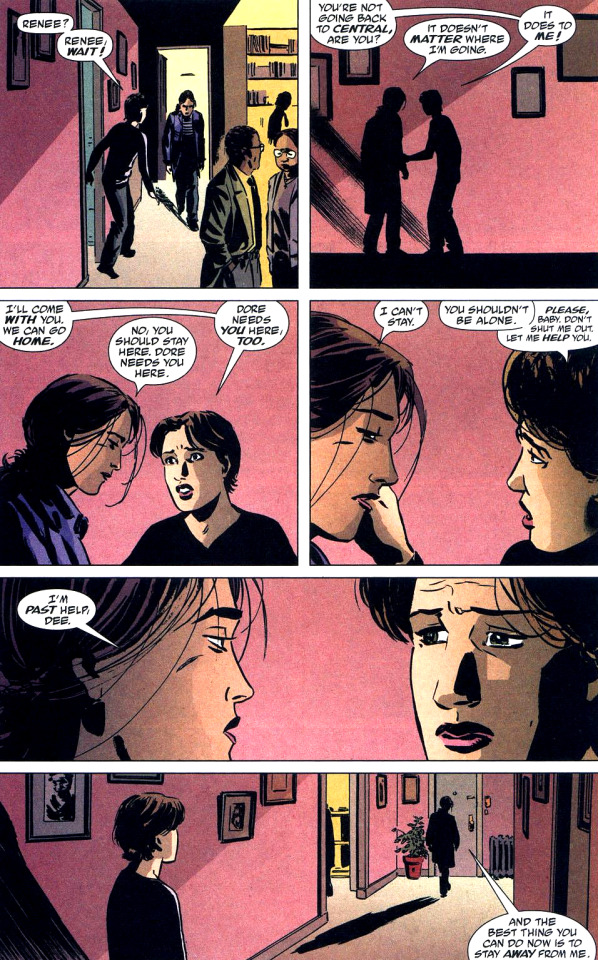
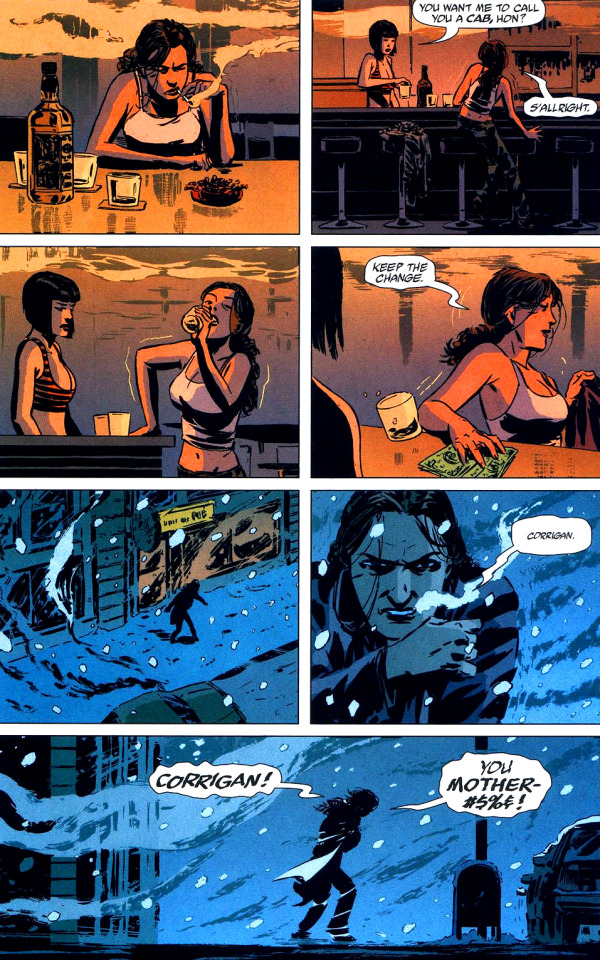
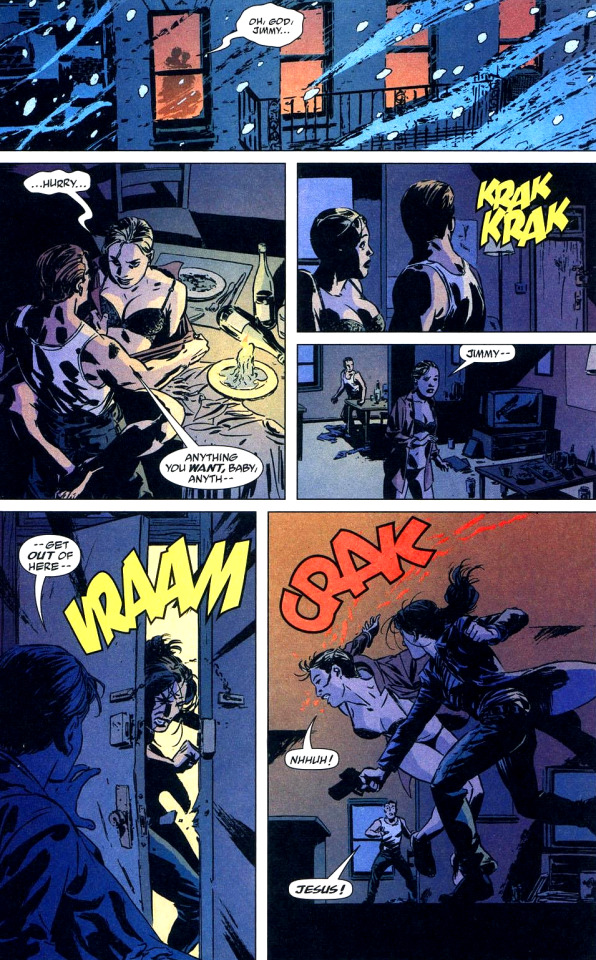

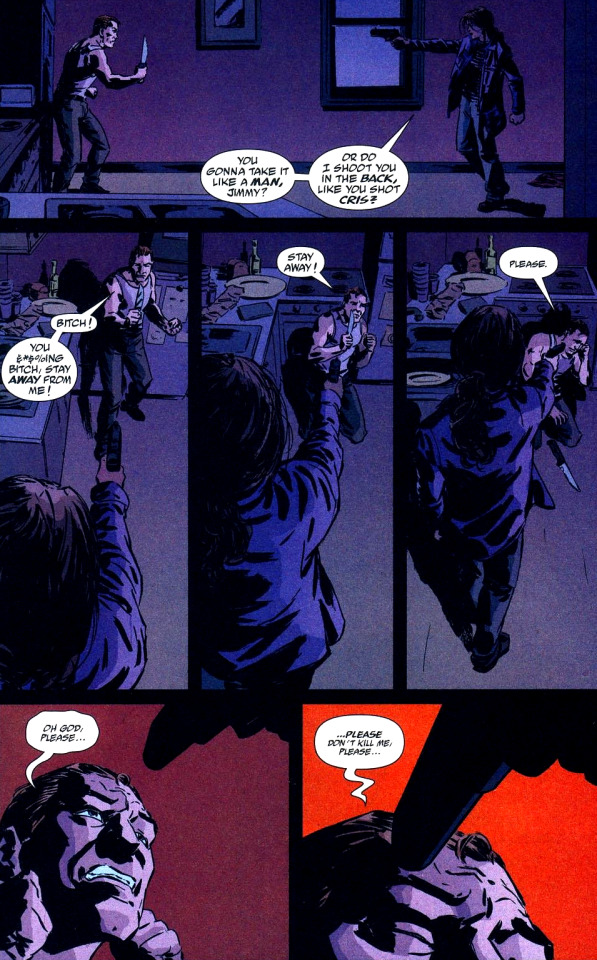

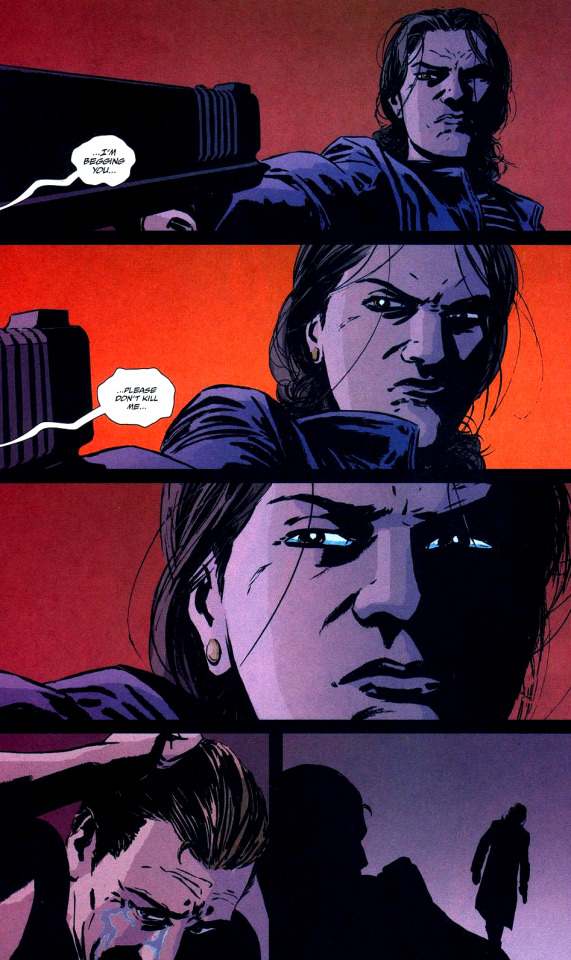

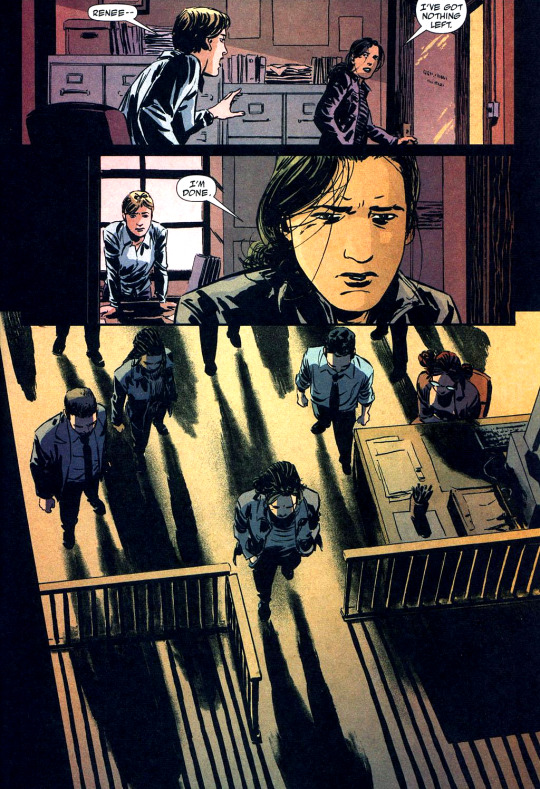
You gonna take it like a man, Jimmy? Or do I shoot you in the back, like you shot Cris?
Gotham Central (2003) #40
(Greg Rucka & Ed Brubaker, Kano & Stefan Gaudiano)
#gotham central#gotham central 2003#jim corrigan#renee montoya#greg rucka#ed brubaker#kano#stefan gaudiano#dc#dc comics#dcedit#comicedit#comicsedit#u can reblog#SCREAMING AND CHEERING AND#MY FUCKING GOD.
12 notes
·
View notes
Text
Composition Book Chronicles - R.I.P. Ed Piskor

View On WordPress
#acme novelty library#Batman year wha?#cartoonist kayfabe#cartoonist kayfabe ringside seats#Chris ware#ckrs#dan clowes#DJ Coffman#draw or die co#Ed piskor#eightball#Gilbert Hernandez#grandmaster flash#hhft#hip hop family tree#Jaime Hernandez#Jim rugg#jimmy corrigan#Los bros hernandez#love and rockets#magneto#mario Hernandez#Rest In Peace#street Angel#Wizard magazine#wizzywig#x men#x-men grand design
1 note
·
View note
Text
ED Book Review #4 You Remind Me of You
SUMMARY: Eireann Corrigan tells the true story of how she recovered from anorexia while her high school boyfriend recovered from a suicide attempt and how the situation brought them closer together and, ultimately, further apart.
REVIEW: I love this book more than I could EVER fucking say. Honestly I think all y’all should just go read it right now because I have no clue what else y’all could even do to understand. This book is one of the most impactful things ever in my life oh my God. I’ve made SO MANY people read it you don’t even know.
QUOTES
“you desired attention? Rescue. Attention didn’t always get things done.”-page 17
“So you knew you were losing weight rapidly? It never felt rapid.”-page 28
“You said Cory just told me he heard you promise you’d lose all the weight as soon as they let you out of the hospital. And I said Cory is a pothead who doesn’t even know me. Why would I say that out loud anyway? And you said That’s not an answer. And I said I don’t know what he’s talking about. So you said Swear to me. And I swore to you and I lied.”-page 45
“were you hopeful? I hoped that someone would let me die.”-page 58
“did you see yourself as powerless in your illness? I held my family hostage with my emerging ribcage. But slept on the heating grate and still could not keep myself warm.”-page 114
#ana trigger#ed bllog#ed not ed sheeran#ed relapse#ed di3t#ed disorder#ed vent#ana and mia#ftm ed#autistic ana#You remind me of you#Eireann Corrigan
1 note
·
View note
Text
Harlan Coben's Shelter | Trailer
Harlan Coben's Shelter trailer has been out for some time now but in case you missed it...
The series premieres August 18 on Prime Video
#HarlanCoben #JadenMichael #AbbyCorrigan #PrimeVideo #Thriller #OfficialTrailer #TVSeries
Writer: Harlan Coben (Novel)
Creators: Allen MacDonald, Harlan Coben
Stars: Jaden Michael, Constance Zimmer, Abby Corrigan, Sage Linder
Harlan Coben’s Shelter premieres on August 18 on Prime Video
If you want to support this site, help by getting me coffee from the link below:

View On WordPress
#Abby Corrigan#Alexa Mareka#Alfredo Barrios Jr.#Allen MacDonald#Arlette Aponte#Based on a book#Based on a novel#Book adaptation#Brandon Curry#Charlotte Coben#Christina Choe#constance zimmer#Crime#Deborah Kampmeier#Didi Conn#Drama#Dustin Charles#Ed Decter#Edward Ornelas#Harlan Coben#Harlan Coben&039;s Shelter#Jack Casey#Jaden Michael#Jamie Pohs#Jen Jacob#Katrina Canillas#Lee Aaron Rosen#Maximo Masefield#Mixhe Efthimiou#Mystery
0 notes
Text
Gotham Central, Book Four: Corrigan by Greg Rucka and Ed Brubaker
Title: Gotham Central.Volume: 4.Story Arc: Corrigan.
Writer(s): Greg Rucka & Ed Brubaker.Artist(s): Kano & Steve Lieber.Inker(s): Steve Gaudiano & Steve Lieber.Colourist(s): Lee Loughridge.Letterer(s): Clem Robins.Publisher: DC Comics.Format: Paperback.Release Date: March 15th, 2010.Pages: 224.Genre(s): Comics, Superheroes.ISBN13: 9781401231941.
My Overall Rating:
⭐⭐⭐⭐
Rating: 4 out of…
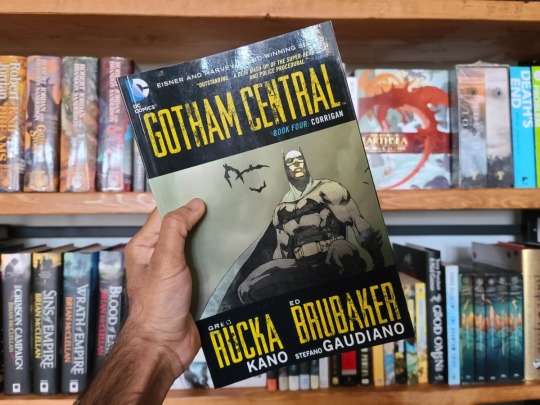
View On WordPress
#batman#comic book#corrigan#dc comics#dc universe#ed brubaker#gotham central#greg rucka#review#roars and echoes
1 note
·
View note
Text
RESULTS Fandom's Favorite HBO War Character (Round 1)
Thank you so much for the great responses to everyone who participated in Round 1 of the poll. 85 votes were cast in this round, which was way more than I ever hoped would participate! Also, your comments in the optional box and in my Tumblr notes are hilarious. Please keep them coming.
Not too many surprises in this first round, but it only gets tougher from here, folks! Some insights on the voting:
The biggest surprise was definitely the defeat of John Basilone by Ack Ack Haldane. This was a tough one!
The largest vote difference was between David Webster (98.8% of the votes) vs. Roy Cobb (1.2%) The hatred for Roy Cobb is noted and appreciated :)
The closest match-up was between Eric Kocher (51.8%) and John Christeson (48.2%) sadly knocking my boy John out of the running :(
Under the cut are the numbers on who voted who with commentary from yours truly. Round 2 will hopefully be up tomorrow, Sunday, November 6. Hope to see you there!
Dick Winters (82) vs. Don Hoobler (3)
Lewis Nixon (78) vs. Albert Blithe (7)
Doc Roe (81) vs. Ralph Spina (4)
Donald Malarkey (55) vs. Shifty Powers (30)
Carwood Lipton (81) vs. Mo Alley (4)
Floyd Talbert (53) vs. Chuck Grant (32) I'm so sorry
Bull Randleman (72) vs. Popeye Wynn (13)
Johnny Martin (65) vs. Skinny Sisk (20)
George Luz (70) vs. Harry Welsh (15) also very sorry
Frank Perconte (78) vs. Alton More (7)
Joe Liebgott (81) vs. Burt "Pat" Christenson (4)
Skip Muck (51) vs. Buck Compton (34) wow really sorry
Babe Heffron (74) vs. Alex Penkala (11)
Antonio Garcia (44) vs. Joseph Ramirez (41) SO CLOSE
Bill Guarnere (73) vs. John Hall (12) sorry to the person in the comments who I hurt with my pairing here :(
Joe Toye (79) vs. Moose Heyliger (6)
David Webster (84) vs. Roy Cobb (1) LOL (that 1 vote came at the very end)
Ron Speirs (82) vs. Smokey Gordon (3)
Col. Robert Sink (65) vs. Maj. Robert Strayer
Thomas Peacock (47) vs. William Dukeman Jr. (38)
Ed Tipper (51) vs. Earl McClung (34)
Herbert Sobel (57) vs. Norman Dike (28) I would love to study WHY
Patrick O'Keefe (55) vs. Mike Ranney (30) Y'all did my boy dirty
John Janovec (46) vs. James Miller (39) Why do I feel like this was totally a Tom Hardy vs. James McAvoy thing???
Thomas Meehan (53) vs. John Julian (32) They literally both die after like one episode lol
Eugene Jackson (71) vs. Edward Shames (14)
Robert Leckie (70) vs. Dr. Sledge (15) I could feel the dislike for Leckie in those 15 votes
Eugene Sledge (73) vs. Hugh Corrigan (12)
Ack Ack Haldane (65) John Basilone (20) so sorry
Sidney Phillips (54) vs. Bill Leyden (31) how dare y'all
Chuckler Juergens (56) vs. Runner Conley (29)
Snafu Shelton (76) vs. Elmo "Gunny" Haney (9)
R.V. "Burgie" Burgin (68) vs. Ronnie Gibson (17)
Hoosier Smith (77) vs. Jay de'Leau (8) so sorry to that one person who left the sad comment on my poll :(
Chesty Puller (69) vs. Lt. Stone (16)
Manuel Rodriquez (47) vs. J.P. Morgan (38) It's Jon Bernthal. I get it.
Lena Riggi Basilone (62) vs. Vera Keller (23) Lena wins, as she should.
Hillbilly Jones (78) vs. Robert Oswalt (7)
John Hamm (55) vs. John Powell (30)
Stella (46) vs. Gwen (39) this one was actually much closer than I thought it would be
Brad Colbert (74) vs. Bryan Patterson (11)
Ray Person (76) vs. Gabe Garza (9)
Poke Espera (67) vs. Evan Wright (18)
Nate Fick (76) vs. Jason Lilley (9)
James Trombley (53) vs. Meesh (32)
Doc Bryan (75) vs. Godfather Ferando (10)
Q-Tip Stafford (69) vs. Manimal Jacks (16)
Walt Hasser (50) vs Mike Wynn (35) sorry
Shady B Baptista (65) vs. James Chaffin (20)
Rudy Reyes (75) vs. James Mattis (10) these 10 people need to be checked
Captain America (49) vs. Casey Kasem (36) this one was close for most of the polling
Encino Man (46) vs. John Sixta (39) this one was also close
Steven Lovell (57) vs. Jeff "Dirty Earl" Carisalez (28)
Eric Kocher (44) vs. John Christeson (41) the lead was even closer until the last few votes
Pappy Patrick (67) vs. Todd Eckloff (18)
See you crazy kids in Round 2!
@lightthewaybackhome @g-luztrash @moonlight511 @vorarephiliax-blog @offbeatpaikea23 @itstheheebiejeebies @hellshee@mccall-muffin @softguarnere @donaldmalarkeyswhore @softliebgott @thehonourablealgernon @1337wtfomgbbq @multifandomlover01 @incorrectbandofbrothersquotes @incorrecthbowarquotes @lucky-bastards @heystovepipeboys @aerokriegs @t-4georgeluz @hillbillied @contact-right
44 notes
·
View notes
Photo
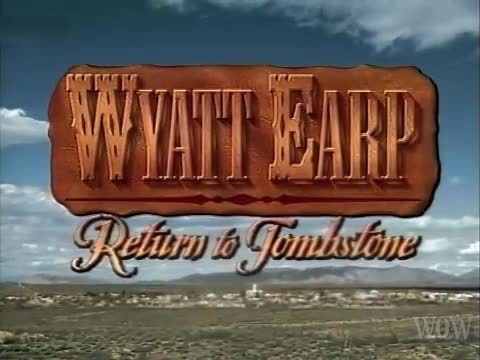


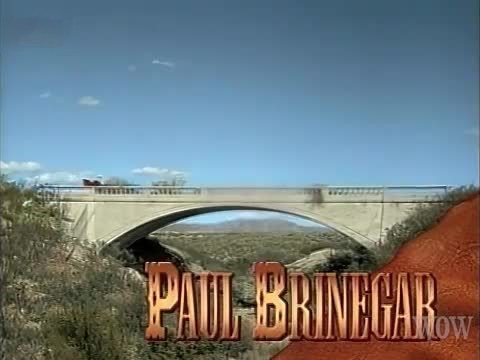
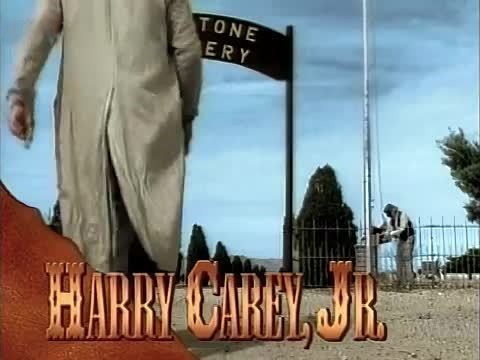
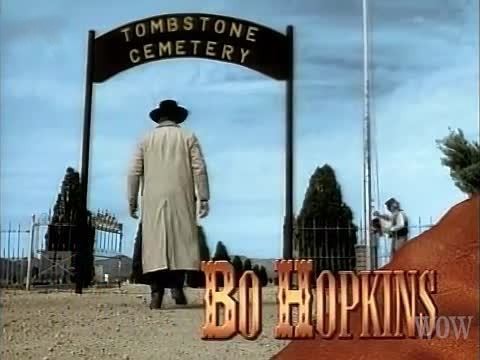


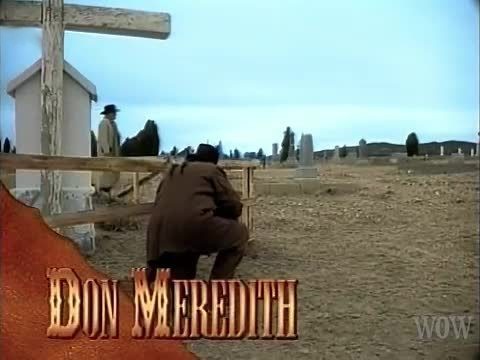
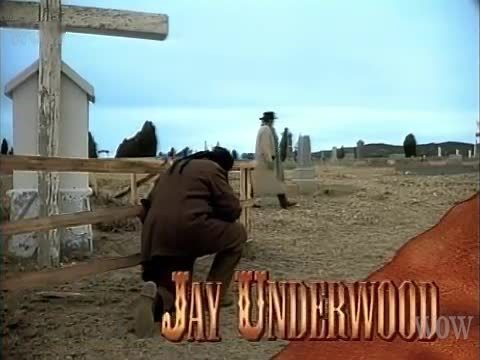
Wyatt Earp Return to Tombstone - CBS - July 1, 1994
Western
Running Time: 100 minutes
Stars:
Hugh O'Brian as Wyatt Earp
Bruce Boxleitner as Sheriff Sam, Sheriff of Cochise County
Paul Brinegar as Jim "Dog" Kelly
Harry Carey Jr. as "Digger" Phelps
Bo Hopkins as "Rattlesnake" Reynolds
Alex Hyde-White as Woodworth Clum
Martin Kove as Ed Ross
Don Meredith as Clay, The Bartender
Jay Underwood as Jack Montgomery
Douglas Fowley as John "Doc" Holliday / "Doc" Fabrique (flashback sequences)
John Anderson as Virgil Earp (flashback sequence)
Dirk London as Morgan Earp (flashback sequence)
Rayford Barnes as Joe "Ike" Clanton (flashback sequence)
Steve Brodie as Sheriff Johnny Behan (flashback sequence)
Lloyd Corrigan as Ned Buntline (flashback sequence)
Nancy Hale as Miss Sally (flashback sequence)
Trevor Bardette as Old Man Clanton (flashback sequence)
Norman Alden as Johnny Ringo (flashback sequence)
Gregg Palmer as Tom McLowery (flashback sequence)
George D. Wallace as Frank McLowery (flashback sequence)
#Wyatt Earp Return to Tombstone#TV#Western#1994#CBS#Hugh O'Brian#Bruce Boxleitner#Paul Brinegar#Harry Carey Jr#Bo Hopkins#Alex Hyde-White#Martin Kove#Don Meredith#Jay Underwood
8 notes
·
View notes
Text
CHRIS WARE NEL GIOCATTOLONE PARIGINO
Il Centre Pompidou sembra fatto apposta per ospitare una mostra di Chris Ware, uno dei più grandi fumettisti del mondo. Anzi sono i graphic novel di Chris Ware ad essere adatti ad essere ospitati in un giocattolone meccanico come il Centre Pompidou. Potremmo dire che le due cose sono fatte l’una per l’altra. Tuttavia il Beaubourg non aveva mai ospitato una mostra di Chris Ware e, probabilmente nemmeno Ware aveva mai disegnato il Centre parigino in una sua striscia. Per fortuna in queste settimane e fino al prossimo 10 ottobre, il Centre Pompidou ospita una magnifica esposizione sul lavoro del grande fumettista statunitense. Chris Ware, va detto per i pochi che non lo conoscessero, non è solo uno straordinario disegnatore e narratore, ma è anche un “progettatore” e “ costruttore” di libri. Per lui il disegno della striscia, il lettering, lo story board, non esauriscono il suo lavoro. Ware si occupa infatti dell’intero processo di produzione di un graphic novel e la mostra parigina vuole render nota questa sua caratteristica, attraverso una esposizione cronologica del suo lavoro che parte da Chicago, dove Ware comincia a pubblicare dagli anni Novanta i suoi lavori su RAW, la rivista d’avanguardia diretta da Art Spiegelman e François Mauly. La sua carriera prosegue quindi con la creazione di grandi personaggi, anche se sempre un po’ di nicchia, come Quimby the Mouse, Potato Guy, Sparkly e, soprattutto, il Forrest Gump del mondo del fumetto, ovvero Jimmy Corrigan. Su di lui ebbero grande influenza mostri sacri della striscia come l’incommensurabile George Herriman e Frank King, autori degli indimenticabili ed indimenticati “Krazy Kat” e “Gasoline Alley”. I fumetti di Ware sembrano non avere un principio né una fine, sembrano un nastro continuo, un repertorio infinito di vicende umane, luoghi e oggetti, dove l’oggetto può occupare, per importanza, lo stesso posto di un personaggio, in una abolizione di gerarchie grafiche di assoluta originalità. Nulla sfugge al suo analitico e maniacale tratto sintetico ed iper didascalico. Non per nulla i pannelli esplicativi della mostra di Beaubourg fanno esplicito riferimento alla scrittura di Georges Perec di “La Vie mode d’emploi”. A questo proposito è bene ricordare che nelle sue “Building Stories”, sono raccontate storie di edifici comuni che vengono scandagliati dal pennino e dai pennelli di Ware, storie di edifici che danno spazio a storie umane che si intrecciano con le storie degli edifici, in una dialettica infinita descritta con la minuzia di un grande creatore di segni sintetici e analitici al tempo stesso. Qualcosa di simile a ciò che Gianfranco Baruchello ha fatto con le sue grafiche, ma senza una incalzante e stringente logica narrativa. Anche la successiva serie di “Rusty Brown” ha pagine sequenziali e sincroniche, figurative e ideografiche, con un segno ormai rigorosamente codificato che racconta l’ordine e il disordine delle cose. Mostra importantissima e meritatissimo riconoscimento per un grande artista del graphic novel, bellissime le tavole esposte, completi gli apparati e le carte, curiosi i gadget, a cominciare dal diabolico puzzle prodotto da una casa editrice giapponese e tratto da un suo disegno. Il Centre Pompidou si dimostra, ancora una volta essere uno straordinario diffusore e divulgatore culturale.


2 notes
·
View notes
Photo
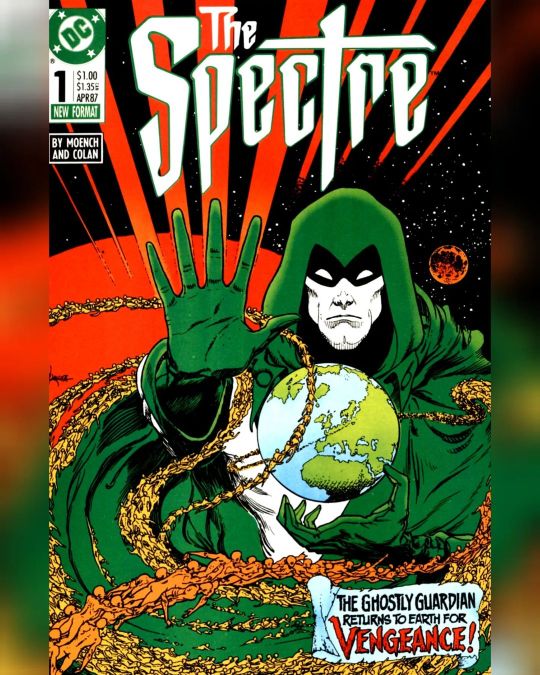
The Spectre vol 2 1 (1987) . Vessels . Written by Doug Moench Penciled by Gene Colan Inked by Steve Mitchell Colors by Adrienne Roy Lettered by John Costanza Edited by Robert Greenberger Cover by Mike Kaluta, Ed Hannigan and Todd Klein . Jim Corrigan and the Spectre were "resurrected" by Xanadu... . #spectre #dccomics #supernatural #genecolan #mikekaluta #xanadu #80s https://www.instagram.com/p/ChLEtmfMJtl/?igshid=NGJjMDIxMWI=
2 notes
·
View notes
Text
Geoffrey Hill – 'The Unconscious Mind's Intelligible Structure': A Debate
I have chosen as title for this brief and inconclusive debate a phrase from Richard Ellmann's Eminent Domain (1967, 52). It is there said of Yeats that to the end, even in his last poems where everything estimable is imperilled, he remained stubbornly loyal to the conscious mind's intelligible structure.' I think it proper to emphasize that I am taking the phrase out of context and employing it in a possibly-arbitrary fashion.
The debate begins, somewhat remotely, by attempting to distinguish between various kinds of objectivity, in the hope that the distinction may profitably be applied to a consideration of modern poetry, particularly that of Yeats. At the outset it is necessary to refer to three epigraphs or texts. The first is from Donald R. Pearce's introduction to his edition of The Senate Speeches of W.B. Yeats (1961):
Mrs Yeats once explained to me that [Yeats] was accustomed to distinguish those pages of manuscript that were to be discarded from those that were to be kept and filed by referring to the latter as 'history'; early drafts of certain poems, abandoned ideas for a play, alternative versions of some essay - all had their place in an intellectual and personal 'history that was as objective to his scrutiny as if it were not his own but the life of another man (p.22).
The second text is a phrase from an essay by Matthew Corrigan, in which he writes of the 'primary objective world... its cruelty and indifference (Encounter, July 1970, 85). The third citation is from Simone Weil:
Simultaneous composition on several planes at once is the law of artistic creation, and wherein, in fact, lies its difficulty.
A poet, in the arrangement of words and the choice of each word, must simultaneously bear in mind matters on at least five or six different planes of composition. . .Politics, in their turn, form an art governed by composition. on a multiple plane.
(The Need for Roots, translated by AF. Wills, 1952, 207)
One understands Simone Weil to be suggesting that poetry recognizes the primary objective world not so much by exercising its discursive faculty as by enacting a paradigm: a paradigm in which objective... scrutiny', in the Yeatsian sense, is put into the arena with Corrigan's 'primary objective world'. The value of her statement, from one's own point of view, is in her recognition that one does not attain objectivity simply by surrendering to the primary objective world. Corrigan, of course, sees this too. I am employing his phrase for its succinctness, not because I have any quarrel with it. One's debt to Simone Weil is precise. Within the circumference of her 'law', lyric poetry is necessarily dramatic: indeed, the 'different planes' actually available to a director on his theatre-stage could even be regarded as an indication of what takes place 'simultaneously' in the arena of the poem. When Yeats depicts his own search for a speech 'natural and dramatic' (Letters, ed. Wade, 1954, 583), 'simple and passionate' (ib, 668) he is far from advocating spontaneous lyricism. He is, even, in the second instance, possibly echoing Milton. An early use of the word 'passionate in Yeats's Letters is to be found in his reference, in May 1887, to T.M. Healy's 'rugged, passionate speech' in the House of Commons, 'the most human thing I heard. (35). It is arguable that Yeats's sense of 'simple and passionate speech was always forensic rather than domestic.
Yeats recognized himself, though not without irony, to be an artist in the nineteenth century Romantic tradition. This is a self-limiting truism which requires prompt qualification since, on investigation, no such simple entity as the Romantic tradition can be discovered. To make a distinction based on Yeats's own terminology in A Vision, one might suggest that Romanticism had (and has) both false and true masks. The false mask is formed from what Jacques Maritain admirably summarized as the two unnatural principles: the fecundity of money and the finality of the useful (Art and Scholasticism, translated by J.F. Scanlan, 1930, 37). The false mask either gleams amid the fecundity of money or utters, in terms of the finality of the useful, the wrong kind of moral answer. The London commercial theatre, at the turn of the century, flaunting the fecundity of money, aroused Yeats s contempt (Letters, 308–311). He was equally accurate in taking issue with George Bernard Shaw. As early as 1900 (Letters, 335) Yeats was calling Shaw 'reactionary', a particularly prophetic epithet in the light of Major Barbara. It is at least open to suggestion that Shaw's adherence to the finality of the useful, far from being antithetical to the false mask of Romanticism, is but a further manifestation of it. In paying lip-service to the realist, the practical man, Shaw makes the fecundity of money finally useful It is a synthesis of a kind, but such a synthesis as to mak Weil's 'composition on several planes' a preferable alternative.
Having sketched this view of the false mask one will rightly be required to present an image of the true mask. Thus, the 'true mask' could be shaped in one of two ways, each of which is in accord with the conscious mind's intelligible structure The first way presupposes a grammar of assent. The second w: is available if the first is not; and is the way of syntax. Synt: could be understood as Donald Davie presents it in his bor Articulate Energy (1955) or it could be extended to accomodate Simone Weil's 'law of artistic creation', as defined The Need for Roots.
In setting the phrase 'grammar of assent' in lower case ty one is arbitrarily making a metaphor, a metaphor to take place of Newman's reality. A Grammar of Assent is not same thing as a grammar of assent; and one's metaphor exists to acknowledge the difference
As the structure of the universe speaks to us of Him who made it, so the laws of the mind are the expression, not of mere constituted order, but of His will. (John Henry Cardinal Newman, An Essay in Aid of a Grammar of Assent, 1913 ed., 351)
The shape of my debate, if it can be said to have one, require 'mere constituted order' to be held in equal observation against 'the conscious mind's intelligible structure'. It will not have escaped notice that my discussion relies heavily on a law' devised by a writer who, in the words of E.W.F. Tomlin, devoted a good deal of 'wistful attention' to the Church but who was unable, finally, to assent. One is, with the greatest reverence and respect, citing Simone Weil's predicament as being an exemplary one. She has been dead nearly thirty years; the issues have long been public; one is not trespassing on any privacy. It needs to be said equally strongly that one is not trespassing on one's own privacy. There is nothing 'confessional' about this debate. The situation is far from being intimate. Arguably one is describing, albeit hypothetically, a common cultural predicament: so common as to verge on mere truism. One cannot, however, pervert the purity of Newman's meaning. A Grammar of Assent would have to be Catholic: 'Non in dialectica com-placuit Deo salvum facere populum suum'. A grammar of assent, which is a lesser thing, a metaphor, does not have to be Catholic, though it could be:
. . .when faith is informed by what Newman calls real assent, which involves the imagination, it is as living as the imagination itself', and this means to say that it not only leads on to action, but is enriched and deepened by action. (Alexander Dru, Peguy, 1956, 60)
Readers of Alexander Dru's book will recognize that my emphasis does not do his argument justice. I have chosen to interpret as metaphor a statement that he did not necessarily set down as metaphor; and for this I would ask his forgiveness.
It is my contention that there are certain sectors, not necessarily or exclusively Catholic, where real assent, involving a reciprocity between imagination and action, can be observed. There is a sense in which Conrad's assent to the code of the British Merchant Service provided him with a grammar that transfigured syntax as effectively as it transcended dangerous spontaneity. Óne thinks particularly of the two polemic essays, first published in the English Review in 1912, on the sinking of the 'Titanic. His imagination not only leads on' to action but is 'enriched and deepened' by his grasp of right action:
So, once more: continuous bulkheads — a clear way of escape to the deck out of each water-tight compartment. Nothing less. And it specialists, the precious specialists of the sort that builds 'unsinkable ships, tell you that it cannot be done, don't you believe them. It can be done, and they are quite clever enough to do it too. The objections they will raise, however disguised in the solemn mystery of technical phrases, will not be technical, but commercial. (Notes on Life and Letters, 1921, 314)
One notes here how facialties come together: the faculty of moral indignation with the faculty of practical amelioration. Contrasted with this, Arnold's 'sweetness and light' is inane and what Yeats called Burke's 'great melody sounds off-key, reveals itself to be, for all its resonance, a protest against natural right in the name of expediency'. (H.J. Laski, Political Thought in England: from Locke to Bentham, (1920), 1932, 187).
With Burke, however, we approach our second category. Failing a grammar of assent, syntax may serve. Possibly it is not untrue to say that the best answer to Burke's conservatism is to be found in his own pages.' (Laski, 176). In this respect Laski's suggestion conrelates with Arnold's praise of Burke's return... upon himself'. In his essay "The Function of Criticism at the Present Time', Arnold cites the concluding passage of Burke's 'Thoughts on French Affairs' of December 1791:
The evil is stated, in my opinion, as it exists. The remedy must be where power, wisdom and information, I hope, are more united with good intentions than they can be with me. I have done with this subject, I believe, for ever. It has given me many anxious moments for the two last years. If a great change is to be made in human affairs, the minds of men will be fitted to it; the general opinions and feelings will draw that way. Every fear, every hope will forward it; and then they who persist in op. posing this mighty current in human affairs, will appear rather to resist the decrees of Providence itself, than the mere designs of men. They will not be resolute and firm, but perverse and obstinate.
Burke's passage is plangent with futile simplistic determinism and witless platitude (the minds of men will be fitted to it... this mighty current in human affairs). If Burke were spontaneously ejecting platitudes it would be contemptible. It is his very recognition of the force of the contemptible, in oneself and in others, that makes the passage an arena of 'several planes. The fact that such a quality of recognition may be thought uncharacteristic of Burke's general mode does not invalidate its particular power or detract from the effectiveness of Arnold's choice. 'That return of Burke upon himself' says Arnold, has always seemed to me one of the finest things in English literature, or indeed in any literature.' At the moment that one recognizes the justice of Arnold's praise, one simultaneously seizes upon the nub of his situation. Burke's words, which have impinged upon Arnold's critical intelligence in their true nature, that is, as thwarted politics, are made to issue from Arnold's critical intelligence as a quite distinct entity, that is, as English literature'. If, as Alexander Dru suggests, assent in the illative sense 'not only leads on to action, but is enriched and deepened by action', , then Arnold, for all the fineness of his critical eye, is subjecting Burke's sentences to a process of negative conversion. How an intuitive sense of this can oppress a fine intelligence is, I think, nowhere better described than by Arnold himself, brooding over 'Empedocles on Etna':
What then are the situations, from the representation of which, though accurate, no poetical enjoyment can be derived? They are those in which the suffering finds no vent in action... in which there is everything to be endured, nothing to be done. (Preface to Poems, 1853)
If one cannot have a grammar of assent one has a dichotomy. On one side of this will be, at worst, a dependence on tones of voice, Arnold's fastidious whining about an original shortcoming in the more delicate spiritual perceptions'; at best, syntax or 'the conscious mind's intelligible structure. On the other side there may be merely 'manic and depressive phases of activity and inactivity, mostly of an 'intermittent character', as Conor Cruise O'Brien suggests in his essay on Yeats's politics:
If a Marxist, believing that history is going in a given direction, thinks it right to give it a good shove in the way it is going, it is natural enough that one who, like Yeats, feels that it is going in the opposite direction, should accompany it that way with, if not a shove, at least a cautious tilt. (O' Brien, in A.N. Jeffares and K.G.W. Cross, eds., In Excited Reverie, 1965, 263, 265, 278)
Though his phrasing here is callous and slovenly, the critic is not at fault. He knows perfectly well what he is about and his words mimic effectively the nature of Yeats's error: an error which we are to discern amid the shambles of phrases like 'natural enough' and 'if not a shove. In Yeats's poetry there is imagination; in Yeats's politics there is action; but the one does not enrich and deepen the other. There is no real assent; there is no illative sense, no grammar. In politics, therefore, Yeats's aristocratic bias does not save him from vulgarity; the 'aristocrat' is conned by a pseudo-aristocracy of the gutter.
If, however, we accept the dichotomy as a simple datum, we have the right, within the terms of such a proviso, to praise the persistent energy of Yeats's poetic syntax. Arguably, the entire melody of Easter 1916, a poem that Maud Gonne, dedicated to the finality of the useful, thought wholly inadequate to the occasion, is itself an articulation of the Burkean 'return'. So, perhaps, is the second stanza of section five of 'Vacillation', though here one's argument is less secure. Yeats's gesture strikes one as being formulistic:
Things said or done long years ago,
Or things I did not do or say
But thought that I might say or do,
Weigh me down, and not a day
But something is recalled,
My conscience or my vanity appalled.
(Collected Poems, 1950, 284)
The mannerism of lines two and three is close to being a travesty of what Arnold meant when he praised that return of Burke upon himself. Perhaps, though, the last-minute snatching away of the formula constitutes a more genuine 'return'. The last four words of the stanza redeem the truism. One could speak of 'conscience' with firmness and without appearing a fool. It is 'vanity' that, at the last moment, effects the 'return', that concedes the element of clownishness in the man who might have preferred to be a hero in remorse.
It is the final lines of 'The Second Coming that offer what is perhaps the finest of these returns. Scholars have made us familiar with the volatile emotional essences, what one might call the petty romanticism, out of which this major Romantic statement developed. We have learned of the possibly subconscious recollection of Shelley's 'Ozymandias' in Yeats's mental image of a desert and a black Titan' (see Jon Stallworthy, Between the Lines, 22-3) and we have read, in Yeats's own note in Wheels and Butterflies (1934 ed., 103) of a brazen winged beast' that he 'associated with laughing, ecstatic destruction'. I have called such recollections 'petty romanticism'. Yeats made his major discovery in the poem itself, ending:
And what rough beast, its hour come round at last,
Slouches towards Bethlehem to be born? (C.P., 211)
As far as the original petty vision of laughing ecstatic destruct-ion' is here concerned, Yeats has revoked it, in the energy of imagination needed to recall it. He has returned upon himself and, as in the case of Burke, one would hazard the suggestion that the revocation is the outcome of acute historical intelligence drawing its energy from the struggle with that obtuseness which is the dark side of its own selfhood. In. Yeats's case, however, one does not refer so much to the conceptual intelligence operating through language-as-medium, as to the intelligence activated by the pitch of words. Jon Stallworthy has said (Between the Lines, 1963, 6) that 'where words are concerned [Yeats] has almost perfect pitch'. A poet who possesses such near-perfect pitch is able to sound out his own conceptual, discursive intelligence. The simultaneous bearing in mind described by Simone Weil would here relate to Stallworthy's suggestion about 'pitch. The poet is hearing words in depth and is therefore hearing, or sounding, history and morality in depth. It is as though the very recalcitrance of language - and we know that Yeats found the process of composition arduous - stood for the primary objective world in one of its forms of cruelty and indifference; but also for the cultivation of that other objectivity, won through toil (as objective to his scrutiny as if it were not his own but the life of another man').This is the most rewarding implication to be drawn from the exchange of letters between Yeats and Margot Ruddock. The debate between the old man and the young woman is emblematic, as when Yeats writes in reproof When your technic is sloppy your matter grows second-hand there is no difficulty to force you down under the surface _ difficulty is our plough." To this Margot Ruddock replies Do you know that you have made poetry, my solace and my joy, a bloody grind I hate! . . .poetry should not be worked at.' (R. McHugh, ed., Ah, Sweet Dancer, 1970, 81, 88). The irony is that both Yeats's reproof and Margot Ruddock's retort would have to be construed as belong. ing equally to the Romantic tradition, if such a simple entity did in fact exist. Rather they should each be recognized as an individual gyre within the so-called 'stream' of Romantic think-ing; each of necessity involved with the other and yet radically in conflict.
As I have already suggested in referring to Conor Cruise O'Brien's essay on Yeats's politics, it may sometimes be necessary to mimic a dilemma. At this point in the debate one must suggest, on the one hand, that sincerity is not enough, that creativity means cunning and artifice and that 'spontaneity' is an illusion. On the other hand one may have to concede that social empiricism has made of 'sincerity', especially in its current guise of spontaneous reaction to pressures, a potent arbiter of artistic motive and conduct. Put in its most extreme form, the sincerity of the primary objective world finds utterance in a book by the Polish writer Czeslaw Milosz:
The work of human thought should withstand the test of brutal, naked reality. If it cannot, it is worthless. Probably only those things are worth while which can preserve their validity in the eyes of a man threatened with instant death.
A man is lying under machine-gun fire on a street in an embattled city. He looks at the pavement and sees a very amusing sight: the cobblestones are standing upright like the quills of a porcupine. The bullets hitting against their edges displace and tilt them. Such moments in the consciousness of a man judge all poets and philosophers.
(The Captive Mind, translated by Jane Zielonko, 1953, 41).
Granted that this is a parable and not a manifesto; even so this passage moves from a first sentence of general acceptability to a third sentence that excludes from acceptability all those unbaptised by an arbitrary fire. The passage purports to establish new terms of the utmost purity: things and moments. What it does, in fact, is to elevate the man-of-the-moment. However humbled one may be by this, it is still necessary not to be bullied by its absolutist élitist tone. For those who detect the élitism, yet remain humiliated by their implied failure to live up to such demands, the poem of rigorous comfort is Yeats's'Easter 1916'. This poem could be described, in Simone Weil's terms, as a 'simultaneous review of several considerations of a very different nature (The Need for Roots, 206). It comprises middle-aged uncertain envy of those possessed by single-minded conviction, together with a humane scepticism about 'excess and romantic abstraction. One is moved by the artifice of the poem, the mastery of syntactical melody, that enacts this tension of 'several considerations'; the tune of a mind distrustful yet envious, mistrusting the abstraction, mistrusting its own mis-trust, drawn half-against its will into the chanting refrain that is both paean and threnos, yet, once drawn, committed utterly to the melody of the refrain. It is not Newman's real assent; it is not what I have chosen to call Arnold's negative conversion; it is certainly not Milosz's 'validity of moments in the con-sciousness. One can say only that it is a paradigm of the hard-won 'sanctity of the intellect (cf. Letters, 525). 'Intellect' is bound to be misunderstood but, in context, it should not be. One is in no way seeking to equate it with 'cerebral'. Yeats claims in A Vision (1962 re-issue, 268):
A civilisation is a struggle to keep self-control
but this poem, in its measure and syntax, stands as his more exact imagining of that struggle and that civility. One may well feel that Yeats presents arguments, or theories, that require to be answered. Yet even when this is so it remains true for him as for Burke: that the best answer is to be found in his own pages.
Published in Agenda, vol. 9/10 (Autumn–Winter 1971/2)
1 note
·
View note
Text
Birthdays 1.22
Beer Birthdays
Pat Hagerman (1964)
James Renfrew (1965)
Motor (1966)
Bud Bundy, character on Married… with Children, named after Al Bundy's favorite beer (1975)
Five Favorite Birthdays
Francis Bacon; writer, philosopher (1561)
Sergei Eisenstein; Russian director & screenwriter (1898)
Robert E. Howard; fantasy writer (1906)
J.J. Johnson; jazz trombonist, bandleader (1924)
Diane Lane; actress (1965)
Famous Birthdays
Andre Marie Ampere; physicist (1775)
George Balanchine; choreographer (1904)
Bill Bixby; actor (1934)
Richard Blackmore; English physician & poet (1654)
Linda Blair; actress (1959)
Ed Bradley; television journalist (1941)
Ernst Busch; German actor and singer (1900)
Lord Byron; poet (1788)
Seymour Cassel; actor (1935)
Sam Cooke; musician (1931)
Douglas "Wrong Way" Corrigan; pilot (1907)
Olivia d'Abo; actor (1967)
John Donne; English poet & cleric (1573)
Joe Esposito; author (1938)
Guy Fieri; chef, author, and tv host (1968)
Willa Ford; singer-songwriter & actress (1981)
Pierre Gassendi; French mathematician, astronomer & philosopher (1592)
D.W. Griffith; film director (1875)
Martti Haavio; Finnish poet and mythologist (1899)
Alan J. Heeger; physicist and chemist (1936)
Helen Hoyt; poet and author (1887)
John Hurt; actor (1940)
Michael Hutchence; rock singer (1960)
Jim Jarmusch; film director (1953)
DJ Jazzy Jeff; musician (1965)
Graham Kerr; chef, "Galloping Gourmet" (1934)
William Kidd; Scottish sailor and pirate hunter (1645)
Nicolas Lancret; French painter (1690)
Piper Laurie; actor (1932)
Gotthold Ephraim Lessing, German philosopher & author (1729)
Malcolm McLaren, English singer-songwriter & manager
Charles Morgan; writer (1894)
Steve Perry; rock musician (1949)
Francis Picabia; French painter and poet (1878)
Walter Raleigh; English poet, soldier, & explorer (1552)
Ray Rice; Baltimore Ravens RB (1987)
George "Chuck" Seifert; San Francisco 49ers coach (1940)
John Wesley Shipp; actor (1956)
Ann Sothern; actress (1909)
August Strindberg; Swedish novelist, poet, & playwright (1849)
Hikaru Walter Sulu; Star Trek character (2179)
Conrad Veidt; German-American actor, director (1893)
Frederick Vinson; supreme court chief justice (1890)
Joseph Wambaugh; writer (1937)
John Winthrop; politician (1588)
0 notes
Text
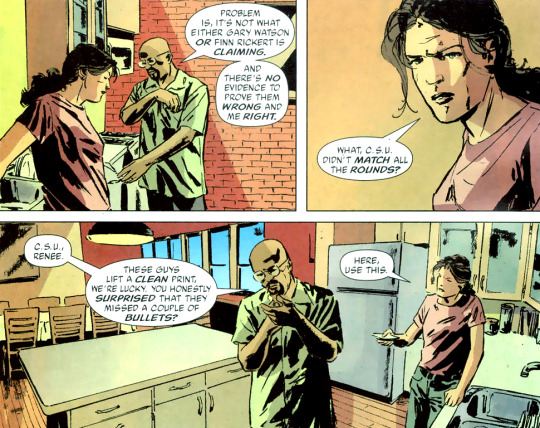

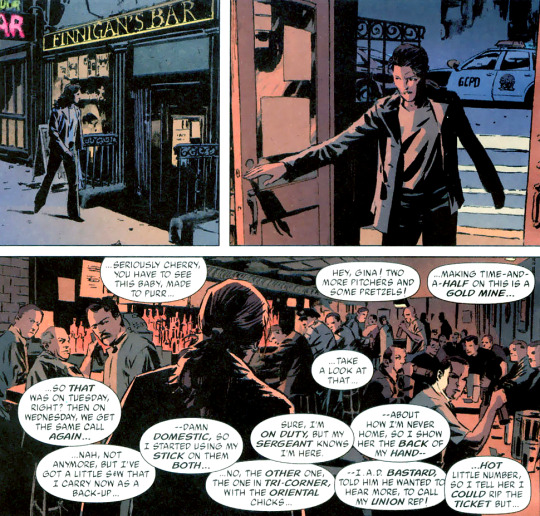





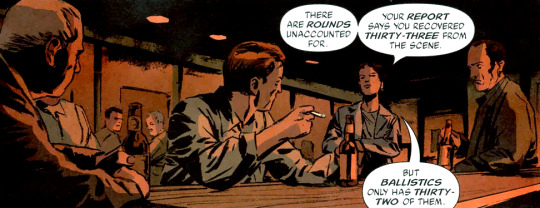

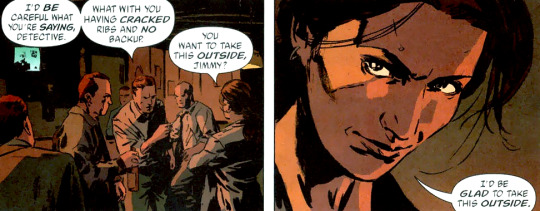

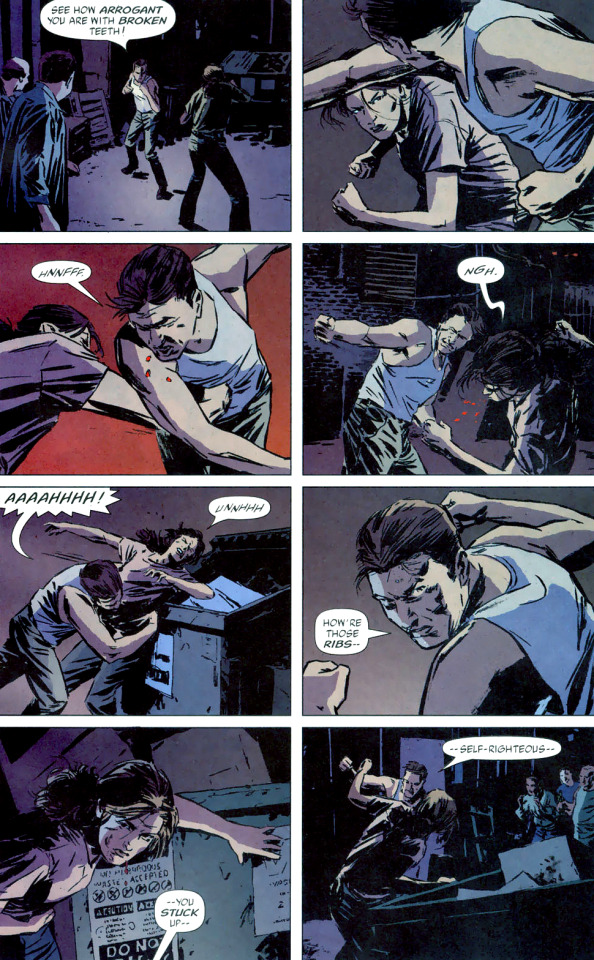



I thought you M.C.U. types were too good to drink with the working class.
Jim Corrigan in Gotham Central (2003) #24
(Greg Rucka & Ed Brubaker, Michael Lark)
#gotham central#gotham central 2003#jim corrigan#renee montoya#crispus allen#ed brubaker#greg rucka#michael lark#dc#dc comics#dcedit#comicedit#comicsedit#u can reblog#screaming out loud. i stand with my cancelled wife
4 notes
·
View notes
Text
Nothing But... Trancetopia, Vol. 08
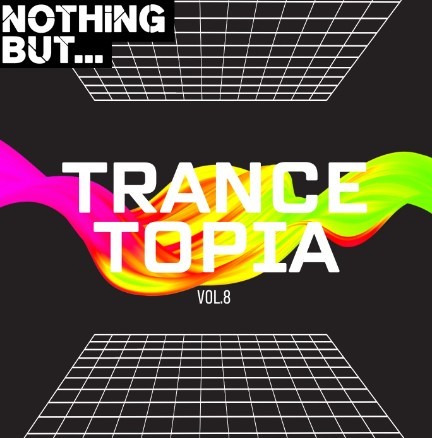
DATE CREATED: 2023-10-28
Tracklist :
1. Accentuate - Polzn Bladz (Original Mix).mp3
2. All I Have - Angel Falls, Christopher Corrigan (Claas Inc. Extended Remix).mp3
3. Apex - Solo Drive (Original Mix).mp3
4. Beyond - The EM23 (Original Mix).mp3
5. Coming Back - Arman Harooni, Reza Yousefi, Dj K-F (Original Mix).mp3
6. Contrasts - Nick V (Extended Mix).mp3
7. Dreamstate - Afgang (Original Mix).mp3
8. Einsteigen Bitte - Ed Myco (Original Mix).mp3
9. Falling Into The Light - Megan McDuffee, Spencer Newell (Extended Mix).mp3
10. Ghurnijhara - Taufiq Azam (Original Mix).mp3
11. Inverse - Skyvol, Djoy (Original Mix).mp3
12. Limit Break - Project Ketsui (Original Mix).mp3
13. Love Is Evolving 2023 - Alchemist Project, The Prestige (Extended Mix).mp3
14. Moon Sphere - Helena Kristiansson (Original Mix).mp3
15. Motive - Super Luminal (Extended Mix).mp3
16. Nerve - Chris Jennings, Kenny Palmer (Extended Mix).mp3
17. Oasis - Vinny DeGeorge (Original Mix).mp3
18.
Read the full article
0 notes
Text
Nothing But... Trancetopia, Vol. 08

DATE CREATED: 2023-10-28
Tracklist :
1. Accentuate - Polzn Bladz (Original Mix).mp3
2. All I Have - Angel Falls, Christopher Corrigan (Claas Inc. Extended Remix).mp3
3. Apex - Solo Drive (Original Mix).mp3
4. Beyond - The EM23 (Original Mix).mp3
5. Coming Back - Arman Harooni, Reza Yousefi, Dj K-F (Original Mix).mp3
6. Contrasts - Nick V (Extended Mix).mp3
7. Dreamstate - Afgang (Original Mix).mp3
8. Einsteigen Bitte - Ed Myco (Original Mix).mp3
9. Falling Into The Light - Megan McDuffee, Spencer Newell (Extended Mix).mp3
10. Ghurnijhara - Taufiq Azam (Original Mix).mp3
11. Inverse - Skyvol, Djoy (Original Mix).mp3
12. Limit Break - Project Ketsui (Original Mix).mp3
13. Love Is Evolving 2023 - Alchemist Project, The Prestige (Extended Mix).mp3
14. Moon Sphere - Helena Kristiansson (Original Mix).mp3
15. Motive - Super Luminal (Extended Mix).mp3
16. Nerve - Chris Jennings, Kenny Palmer (Extended Mix).mp3
17. Oasis - Vinny DeGeorge (Original Mix).mp3
18.
Read the full article
0 notes
Text
Liked on YouTube: Mel Blanc Associates Presents Superfun
Mel Blanc Associates Presents Superfun
SUPERFUN The Radio Comedy Service SUPERFUN, What It Is A comedy void has existed on radio since Jack Benny, Fred Allen, and the other comedy shows left the air. Comedy albums, the only produced humor available to today's radio, have never become a major factor in programming because too few of them are suitable for airing, due to the nature and length of the sketches. As important, no one station in a market has their exclusive usage and the one or two really funny albums released each year become overexposed. SUPERFUIN fills this existing void. It is the most ambitious radio comedy project ever undertaken. Each subscribing station becomes, at once, the prime source of humor in its market...whether the market is Los Angeles, California or East Liverpool, Ohio. One reason for this is SUPERFUN'S scope; the initial service alone fills nine twelve-inch discs. Equally important, by virtue of its unique design and execution, SUPERFUN belongs to you alone in your market, not to us. The writers, producers and performers are to your listeners, anonymous. Creative Supervision... Mel Blanc Produced & Directed by Noel Blanc Head Writer... Richard Clorfene Exec. Producer... Harry O'Connor PERFORMERS: Mel Blanc, Len Weinrib, Byron Kane, Joan Gerber, Arte Johnson, Howard Morris, Joe Sirola, Gary Owens, Lee Zimmer, Rudy Hoffman, Jesse White, Dave Ketchum, Henry Corden, Hazel Shermut, Ed Prentiss, Pat Carroll, Naomi Lewis, Leo De Lyon, Sid Melton, John Stephenson, Diane Hale. WRITING STAFF: John Rappaport, David Pollack, Elias Davis, Red Baker, Bob Ridolfi, Bob Arbogast, Jack Margolis, Judy Corrigan, Robert Biheller, Bill Schwartz. CONTRIBUTING WRITERS: Vance Colvig, John Gentri, Robert Einstein, Nick Bennion, Frank Barron, Albert Einstein, Bill Lutz, Robert Kurtz, Steve Clark, Paul Pumpian, Mal Sharpe, Bob Goodwin, Jim Ashton, Jonathan Socher. SOUND EFFECTS: Eugene Twombly AUDIO ENGINEERS: Paul Ryan and Mike Cerone COVER DESIGN: Nick Bennion
via YouTube https://www.youtube.com/watch?v=iMnKuZWraNI
0 notes